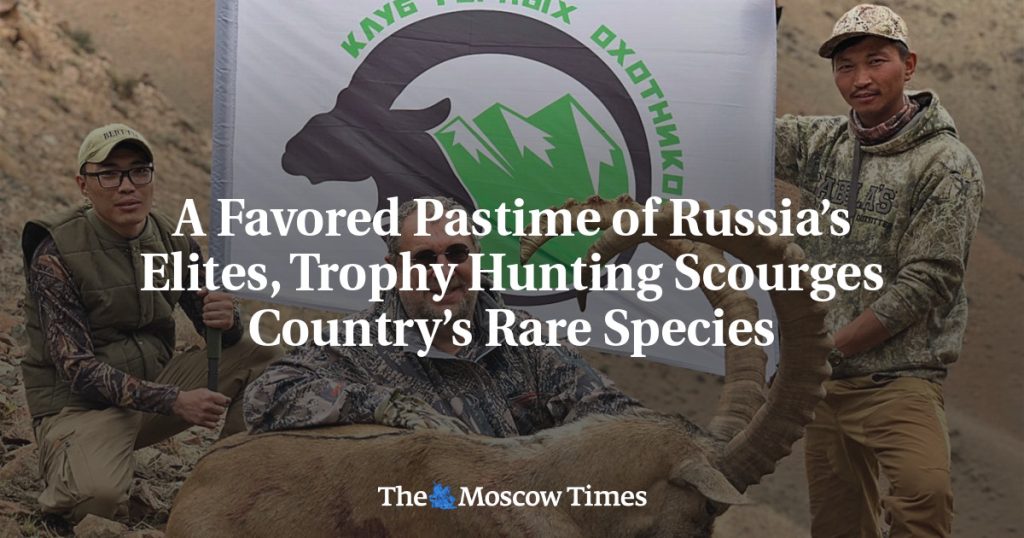VIP hunters in Russia, including senior officials and wealthy businessmen, are increasingly targeting protected animals and areas, which could endanger the survival of rare species due to poor government oversight. Trophy hunting of endangered animals is a common practice, sometimes done illegally, and recent legislative changes have loosened hunting regulations, allowing for the hunting of protected species in exceptional cases. A businessman who stands to benefit from the removal of protected status from Ladoga Skerries National Park is Russian tycoon Roman Abramovich, further highlighting the potential threats trophy hunting poses to ecosystems.
The Russian Club of Mountain Hunters advocates for legal trophy hunting of hoofed animals, including those listed in the Red Book of threatened species. Critics of trophy hunting question the morality of killing animals for recreation and argue that it harms conservation efforts. While hunters argue that their hobby helps maintain ecosystem balance and can fund nature conservation, environmentalists warn that trophy hunting is not as sustainable as proponents claim, as it can disrupt ecosystem balance and harm biodiversity by eliminating the largest animals. Even legal trophy hunting can have negative consequences for wildlife.
Hunting in Russia can have unpredictable consequences for wildlife when combined with other factors, such as habitat loss and disease outbreaks. A lack of prey in forests has led Siberian tigers to encroach on villages, posing a threat to humans and other animals. Poor governmental oversight, unreliable data, and a shortage of hunting inspectors exacerbate the issue. The practice of wealthy individuals taking large forested areas for hunting is not regulated effectively, leading to overexploitation of resources. Trophy hunting, whether domestic or foreign, poses a threat to biodiversity when combined with poaching and inadequate protection measures.
Foreign trophy hunters have been drawn to Russia due to its large, untouched natural habitats, lower prices for hunting compared to Western countries, and the opportunity to secure trophies in the wild. The Covid-19 pandemic and the war in Ukraine have led to a significant decrease in visits by foreign hunters, impacting hunting tour organizers in Russia. While some critics argue that foreign hunting trips in Russia should be reconsidered, others maintain that wildlife in Russia is well managed and that poaching, rather than legal hunting activities, poses a larger threat to game species. Authorities often react only when catastrophic consequences of hunting activities become evident.
In conclusion, the practice of trophy hunting in Russia, whether domestic or foreign, poses a threat to biodiversity and conservation efforts. Poor governmental oversight, combined with other factors like habitat loss and disease outbreaks, exacerbates the issue. While some argue that hunting can help fund conservation efforts, critics highlight the negative impact it can have on ecosystem balance and biodiversity. As the country grapples with reduced foreign hunting activity and the impacts of the recent conflicts, the need for sustainable wildlife management practices and stricter regulations becomes increasingly apparent to protect Russia’s rare species.















